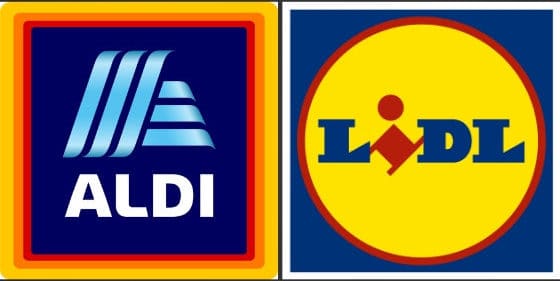
Aldi is different from other grocers in a lot of ways. Quarters. Bagging your own groceries. Mostly house brands rather than national brands.
Another difference? The distinct lingo the company uses.
If you live in the United States, you hear a certain term a lot.
Aldi Finds.
So what are these? And how are they similar to, or different from, Special Buys?
To answer, a brief recap: Aldi has three kinds of inventory it carries in its stores. Most of that inventory is permanent, staying the same from week to week. Some of that inventory, meanwhile, is rotating, which means it’s in for a while, and when it’s gone, it’s gone until Aldi rotates it back in, sometimes not until the next year, if ever.
Aldi refers to the permanent stuff as its core range. While you’ll hear the term core range in some countries, it’s mostly an industry term in the States, one few customers use. For that reason, we use a term for the permanent stuff that is somewhat more familiar to customers: Regular Buys.
Aldi has two classes of rotating inventory. One of those classes is seasonal, which means products that are around for months at a time, like during the summer months or the winter holidays. When these run out, stores will get new inventory at least for a while. Aldi US currently calls those products Seasonal Items.
A second class of rotating inventory takes up a far shorter window than Seasonal Items. These rotating items consist of just one shipment to stores, delivered on a specific week. Once these are sold out, they’re gone until Aldi chooses to bring them back. They could come back later that year, or next year, or even not at all.
For a long time, Aldi US called these single-shipment items Special Buys. And in other places, it still does. Aldi Australia, for example, still uses Special Buys, while Aldi UK and Aldi Ireland use the slightly tweaked term Specialbuys.
Aldi US’s marketing department apparently decided to go a different direction. At some point in the late 2010s, Aldi quietly renamed its rotating lineup from Special Buys to Aldi Finds. Or more specifically, as “ALDI Finds,” since the supermarket likes to stylize its name in all caps.
This creates a bit of a dilemma for us at Aldi Reviewer. Which term should we use … Special Buys or Aldi Finds? The answer is not entirely simple: we are a U.S.-based website and most of our traffic is from the United States, but about 20% of our traffic comes from outside the States, particularly the United Kingdom, Ireland, Australia, and Germany. Some Aldi products are sold in more than one country, such as certain Bauhn- or Medion-labeled items.
It’s also possible long-time American shoppers still use the term Special Buys, even if they’ve now had several years of seeing the term Aldi Finds splashed on Aldi weekly ads. That number is probably far lower than it used to be, but those people may still be there.
In the first year after we discovered the change, we took to being bilingual about it, using both terms. You’ll see that in some of our older Aldi Find reviews, where we might have said “________ is a Special Buy (Aldi Find).” In more recent years, we’ve gone strictly with Aldi Find in our writing, although we still include Special Buy as part of our Aldi Find category tag.
So when you hear the term Aldi Find or Special Buy or Specialbuy, know that they’re all referring to the same thing: namely, limited buys at Aldi. The difference lies in what country the Aldi store in question is located.





Hi Joshua,
Thanks for the lexicon lesson!
I’m sure I’m not alone in wondering if there is a way to request the return of past Aldi Finds?
Here’s how to contact Aldi: https://www.aldi.us/en/contact/